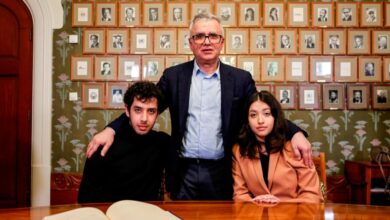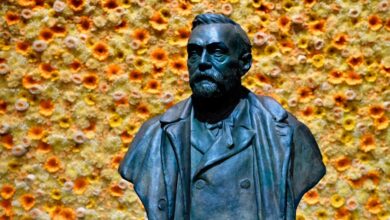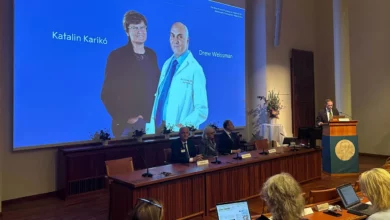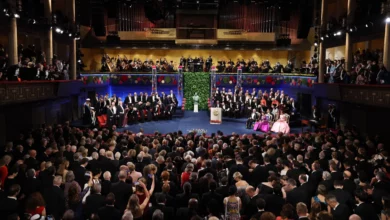This year's Nobel Prize season kicks off on Monday with rumors suggesting the peace prize could go to Egypt's Maggie Gobran for helping Cairo's poor, Afghan burqa opponent Sima Samar or US scholar Gene Sharp.
The first prize to be announced this year will be the medicine award on Monday, when the jury in Stockholm reveals the winner or winners.
Like every year, most of the speculation in the run-up to the announcements focuses on who will take home the prestigious peace and literature prizes.
Betting sites have become a popular feature of the guessing game in recent years, with gamers sometimes curiously accurate amid suspicions of leaks from within the award committees.
This year Gobran, a Coptic Christian dubbed the "Mother Teresa" of Cairo's slums, tops the list of one betting site for the peace prize, with 6.5-to-one odds ahead of the announcement on 12 October.
But that race looks wide open this year with no clear frontrunner among the 231 nominees.
Although the peace prize committee never discloses the nominees' names, former US president Bill Clinton, ex-German chancellor Helmut Kohl and WikiLeaks suspect Bradley Manning are known to be on the list.
The head of the Peace Research Institute of Oslo, Kristian Berg Harpviken, follows the work of the committee and each year publishes his own shortlist of possible winners.
His list includes Sharp, an American political theorist and expert on non-violent revolution; Russian rights group Memorial and its founder Svetlana Gannushkina; and independent Russian media outlet Echo of Moscow and its chief editor Alexei Venediktov.
A Nigerian duo campaigning against the misuse of religion, Archbishop John Onaiyekan and Mohamed Sa'ad Abubakar, Sultan of Sokoto, are also on it, as is Burmese President Thein Sein.
Afghan human rights activist, ex-minister and burqa opponent Sima Samar is also seen as a possible winner, as is Cuban human rights activist Oscar Elias Biscet.
For the literature prize, Chinese author Mo Yan and Japan's Haruki Murakami share the top two spots on one betting site.
Literature experts in Stockholm have suggested it could be time for the academy to pick a woman or a North American.
Names being whispered in literary circles include Canadian short-story writer Alice Munro — although the Swedish Academy has never given the prize to an author of short works — as well as US author Don DeLillo and Somali novelist Nuruddin Farah.
"One could imagine that it would be an author from North America, a man maybe, like Don DeLillo or Philip Roth," said Elisabeth Grate, who runs her own publishing house.
"But it would be nice with a woman."
In line with tradition, and unlike the other prizes, the date of the literature prize announcement is revealed only two days before. But it is traditionally announced on a Thursday and could therefore come on 11 October.
For the medicine prize, Swedish media have mentioned Japan's Shinya Yamanaka and Britain's John Gurdon as possible recipients for their research in nuclear reprogramming, a process that instructs adult cells to form early stem cells which can then be used to form any tissue type.
Public broadcaster Swedish Radio also suggested that the nod could go to researchers in the field of epigenetics, which studies nature versus nurture and how genes respond to their environment.
The physics prize, to be announced on Tuesday, has also created some buzz this year.
The discovery in July of a new fundamental particle believed to be the Higgs boson is one of the biggest breakthroughs in the field of physics in the past half-century, and is widely considered Nobel Prize-worthy research.
The names of the chemistry prize laureates will be revealed on Wednesday, with Swedish Radio suggesting Svante Paeaebo of Sweden could win for his groundbreaking analysis of ancient DNA.
The economics prize, which has been dominated by Americans over the years, is the last to be announced, on 15 October.
Because of the economic crisis, the Nobel Foundation has slashed the prize sum to eight million Swedish kronor (US$1.2 million) per award, down from the 10 million kronor awarded since 2001.




